 Progress in Quantum Cryptography
Progress in Quantum CryptographyThe SeQre2014 Symposium will host world famous experts in Quantum Cryprography and Quantum Key Distribution, as well as Quantum Information and Computation, including:
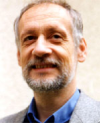
Prof. Nicholas Gisin, Group of Applied Physics, University of Geneva, ID Quantique SA
Prof. Nicolas Gisin was born in Geneva, Switzerland, in 1952. After a post-doctoral degree at the University of Rochester, NY, in 1984 he joined a start-up company, Alphatronix, dedicated to fiber instrumentation for the telecommunication industry.
In 1988 an opportunity to join the Group of Applied Physics at the University of Geneva as head of the optics section brought him back to the academic life. At the time the optics section was mostly working on classical communication. Prof. Gisin invented the measurement technique for Polarization Mode Dispersion most widely used today. In the early 1990’s Prof. Gisin started research in quantum optics. The main focus is to combine the group's broad expertise in optical fibers with a study of basic quantum effects. In 1993 his group demonstrated quantum cryptography under Lake Geneva.
In 2009 he received the first John S. Bell award for the demonstrations of long distance entanglement and quantum teleportation, together with his numerous contributions to the theory of Bell inequalities. His group is world leader in quantum communication. In 2001 he co-founded ID Quantique.
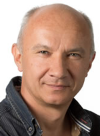
Prof. Artur Ekert, University of Oxford, National University of Singapore, Centre for Quantum Technologies Singapore
Prof. Artur Ekert (born in 1961 in Wrocław, Poland) is a Professor of Quantum Physics at the Mathematical Institute, University of Oxford, and a Lee Kong Chian Centennial Professor at the National University of Singapore and also the Director of CQT (Centre for Quantum Technologies). His research interests extend over most aspects of information processing in quantum-mechanical systems, with a focus on quantum communication and quantum computation. He is best known as one of the inventors of quantum cryptography.
Artur Ekert's research extends over most aspects of information processing in quantum-mechanical systems, with a focus on quantum cryptography and quantum computation. Building on the idea of quantum non-locality and Bell's inequalities he introduced entanglement-based quantum key distribution in his 1991 paper which generated a spate of new research that established a vigorously active new area of physics and cryptography, and is still the most cited paper in the field.
He is a recipient of several awards, including the 1995 Maxwell Medal and Prize by the Institute of Physics and the 2007 Royal Society Hughes Medal.
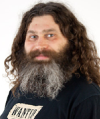
Prof. Vadim Makarov, University of Waterloo, Institute for Quantum Computing, Quantum Hacking Laboratory
Prof. Vadim Makarov (born in 1974 in Leningrad, currently St. Petersburg) is a widely acknowledged specialist in quantum hacking, a discipline which aims to find loopholes in imperfect physical implementations of otherwise theoretically unconditionally secure quantum cryptographic commercial systems. He is an author of the so called blinding attack on some commercial versions of QKD systems, allowing to take control over single photon detector by appropriately blinding it with a high intensity light and thus rendering QKD procedure effectively insecure (by eavesdropping of the exchanged symmetric key).
Prof. Vadim Makarov is currently supervising investigations of other possible attack classes on different imperfect QKD physical implementations by heading the Quantum Hacking Laboratory within the Institute of Quantum Computing at University of Waterloo, and is also additionally consulting leading quantum cryptography companies in patching their QKD systems against proven attacks.
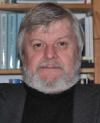
Prof. Marek Kuś, Center for Theoretical Physics, Polish Academy of Sciences Warsaw, Head of Scientific Council of the National Quantum Information Center in Gdansk
Prof. Marek Kuś (born 1955 in Warsaw, Poland) is a Professor of Physics at the Center for Theoretical Physics of the Polish Academy of Sciences in Warsaw, Poland and the Head of Scientific Council of the National Quantum Information Center in Gdańsk, Poland. He obtained his Ph. D. degree from the Department of Physics of the University of Warsaw, Poland and continued his research as a post-doc and a visiting professor at universities in United States, Germany and France.
His scientific interests encompass quantum chaos and quantum information theory with a special emphasis on applications of algebraic and differential geometry to description of composite quantum systems and theory of entanglement.
AIT Austrian Institute of Technology

Quantum Optical Technology business unit of the Austrian Institute of Technologies Safety and Security Department is one of the world-leading centers in development of entanglement based quantum cryptography. In this business unit, headed by Dr. Martin Stierle the basic technologies for highest grade, unbreakable 'quantum-based' secure communication are developed. The areas of research range from theoretical quantum information theory and the development of low level new algorithms for processing quantum keys, over the development of novel highly integrated quantum optical components to the development of key distribution networks and concepts for the integration into existing critical high security applications and infrastructures. The overall goal is to transform the technology into a product with commercial potential. In a parallel thread, market formation and technology policy shaping is carried out on Austrian level, as well as on European level in the framework of an ETSI standardisation initiative for quantum technologies, which is managed by the AIT.
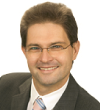
The AIT is a leader in commercialization of the R&D entanglement based QKD systems.
Institutionally Austrian Institute of Technology (former Austrian Research Centers) is Austria's largest non-university research institute of public shareholders (the Republic of Austria, through the Federal Ministry for Transport, Innovation and Technology has a share of 50.46%, while the Federation of Austrian Industries owns 49.54% of AIT).
Austrian Institute of Technology will be represented by: Dr. Andreas Poppe, AIT Austrian Institute of Technology
ID Quantique SA
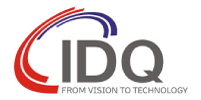
ID Quantique (IDQ) is the leader in high-performance multi-protocol network encryption based on conventional and quantum technologies (Quantum Key Distribution QKD). The company provides network security solutions and services to the financial industry, defence and government organizations and other enterprises globally. It also commercializes a quantum random number generator, which is the reference in the gaming and lottery industry. Additionally IDQ is a leading provider of optical instrumentation products, notably photon counters and related electronics. The company's innovative photonic solutions are used in commercial and research applications.
The company was created in Geneva, Switzerland in 2001 on the strong vision of four scientists, who anticipated the important forthcoming impact of quantum physics on information technology. The company initially operated as a small university spin-off. In late 2003, IDQ raised one million Euros from i2i, a venture capital fund based in Luxemburg, which allowed the company to accelerate its growth. Products of ID Quantique are used by customers in more than 60 countries and on every continent.
The company also maintains close ties with leading academic institutions by participating to several Swiss and European R&D programs and plays a leading role in cutting-edge projects such as the SwissQuantum quantum key distribution testbed.
As a privately held company focused on sustainable growth, IDQ is proud of its independence and believes in establishing long-term and trusting relationships with its customers and partners.
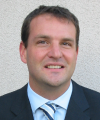
IDQ offers a broad range of high-security layer 2 encryptors for high-speed networks up to 10Gbps. These products have Common Criteria EAL4+ accreditation and are used by customers in the government and banking sectors. For uncompromised security, IDQ also offers a range of quantum key distribution products. Since 2001 id Quantique has been at the forefront of the advancement of this high-potential field and has performed several world premieres.
IDQ also develops and commercializes random number generators based on quantum physics, which are used in several industries including security, prepaid services, as well as gaming and lotteries, where they have become a reference. These products have been independently certified by a Swiss national laboratory and truly random numbers at best-in-class bit rates.
ID Quantique will be represented by: Dr. Grégoire Ribordy, IDQuantique CEO
SeQureNet

SeQureNet brings to the market products relying on continuous variable quantum key distribution (CVQKD) in order to provide high security assurances for network services and practical applications.
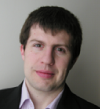
SeQureNet is a start-up company and a spin-off from the quantum information team of Telecom ParisTech. Its team is able to tackle both technical and management challenges, and is helped by a board of advisors composed of renowned specialists in their field. The domains of expertise of SeQureNet are continuous variable quantum key distribution, cryptography and network security. CVQKD is a quantum key distribution technique with standard implementation requirements when compared to photon-counting techniques, and excellent security assurances thanks to unconditional security proofs.
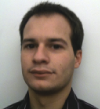
Building on the work done on continuous variables prototypes during SECOQC and SEQURE research projects, SeQureNet brings CVQKD to the market through software and hardware products and services. These are aimed both at the academic and the IT security usage; complete systems as well as building blocks for reseachers devising their own experiments are available.
SeQureNet is maintaining close collaborations with leading academic and industrial research institutions, by actively participating to several R&D programs on QKD, positionned at the top international level. It published several articles in peer-reviewed journals regarding CVKQD performance and security.
SeQureNet will be represented by: Dr. Sébastien Kunz-Jacques, Chief Technical Officer and Dr. Paul Jouguet, R&D Engineer - Executive Officer

MagiQ is a US private company established in 1999 in Boston. It was one of the pioneering companies to commercialize QKD systems.
MagiQ’s ability to bridge the gap between science and commercialization leverages early entry into new market segments. MagiQ executes on new markets by focusing on both new product offerings and intellectual property. Beyond QKD MagiQ areas of expertise include fiber optics, high-speed electronics and RF, acoustics, active feedback, FPGAs and software.
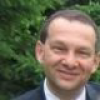
MagiQ Research Labs provides custom products, design engineering, and contract research and development services for optics, quantum information, fiber sensing, aerospace and defense applications. MRL also contracts directly with private firms and government agencies such as the Navy, Army, DARPA, and NASA.
Since 1999, government customers have contracted with MagiQ for technology breakthroughs; business customers depend on MaiQ for innovations that meet their needs.
MagiQ will be represented by: Dr. Anton Zavriev, Director of MagiQ Research Labs

A Japanese telecommunications company headquartered in Tokyo, Japan. Ranked 29th in Fortune Global 500, NTT is the largest telecommunications company in the world in terms of revenue.
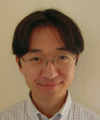
The NTT Basic Research Laboratories conducts research in many different fields, inter alia nanotechnology, quantum information technology, quantum computers, quantum bits and quantum cryptography.
NTT is taking a part in The Tokyo QKD network constructed in a part of the NICT open test-bed network "Japan Giga Bit Network 2 plus", inaugurated on 14th October 2010, together with project teams consisting of NICT, NEC, Mitsubishi Electric, Toshiba Research Europe, ID Quantique, the Austrian Institute of Technology, the Institute of Quantum Optics and Quantum Information and the University of Vienna.
NTT will be represented by: Dr. Kiyoshi Tamaki, Quantum Optical State Control Research Group, NTT Basic Research Laboratories.

Toshiba is developing a new approach to information technology that applies the fundamental laws of Quantum Physics to network communications and computing.
Quantum Information Technology concerns the transport and processing of information using individual particles such as electrons or photons. Using single particles in this way brings unexpected advantages. By sending information encoded upon single photons (the particles of light) it is possible to test the secrecy of each communication.
Toshiba has exploited this phenomenon to create a practical system for secure communication over fibre optical cables. However, Quantum Cryptography, as this secure communication method is known, is just the first in a series of quantum innovations which promises to revolutionise the entire IT industry over the next two decades.
Toshiba are at the forefront of quantum information R&D and have developed the world's leading system for quantum cryptography. We welcome enquiries from potential users of this system or from companies or organisations interested in a commercial partnership to further develop the technology and its applications.
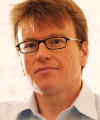
Toshiba Research Europe Limited (TREL) is part of Toshiba's global R&D activity. The Cambridge Research Laboratory of TREL conducts research on quantum information technology, as well as speech recognition and synthesis.
The Quantum Information Group (QIG), led by Dr Andrew Shields, is actively researching the application of Quantum Physics to Information Technologies. Our interest lies not only in exploring new concepts, but also in their practical realization.
Recently we have developed the leading system for Quantum Cryptography, a very secure form of optical communications. In parallel they create the advanced nanotechnology required in future quantum information systems.
Toshiba will be represented by: Dr. Andrew Shields, Assistant Managing Director, Toshiba Research Europe Ltd.